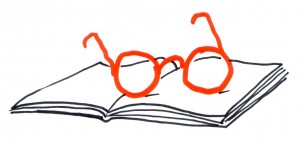 It’s important for an author to know the differences between the various kinds of editing, and understand what professional services an editor may or may not provide. When you work with an editor, find one with whom you can clearly communicate your needs, expectations and working style. Not all editors are the same.
It’s important for an author to know the differences between the various kinds of editing, and understand what professional services an editor may or may not provide. When you work with an editor, find one with whom you can clearly communicate your needs, expectations and working style. Not all editors are the same.
Copyeditors read your document and look for errors in punctuation, spelling, grammar, style, and usage. Sentence structure, unnecessary words, and pagination are covered.
Technical editors read your document for code. The technical specifications required for digital submissions of manuscripts today often means an author requires editorial assistance of a technical nature.
Line editors read for the flow of ideas and arrangement of editorial content. Margin comments are written to the author to address. Line editors move sections around, and identify content that is misplaced, missing, or extraneous.
Structural editors read the manuscript and look at issues of narrative arc, organization, point of view, voice, development of characters or arguments, and other substantive editorial matters. These kind of editors help you put together a clear and coherent line of analysis or work with you to create a narrative arc that satisfies a reader.
Development editors and writing coaches work as needed to be a sounding board while you flesh out your book ideas. A development editor works with an author from the seed of the idea until the book is published and beyond. A writing coach provides you with needed tutorials or guidance to complete your own self-editing.
Editors who will do fact-checking can help with research for your publishing initiative. Find an editor who knows how to conduct the kind of research your book will require; whether subject specific or particular to your audience and market niche. Make sure they know to follow the Manual of Style you specify for your electronic submission.
Ghostwriters are the most aggressive editors in that they take editorial control and rewrite or generate content to communicate your ideas.
Rarely do you find one person who does all these different kinds of editing. And yet, Swenson Book Development LLC, has been privileged to have had Ruth Chlebowski, Ph.D. as Senior Editor and a dedicated team member since the start. Her editorial services will be sorely missed. She has served the select clientele of Swenson Book Development LLC very well.
Congratulations to Senior Editor Ruth Chlebowski who has accepted a full time permanent position as a technical editor and proposal writer in the Austin area.

Thank you, Jill. I will miss working with the SBD team.
Thanks for clarifying the differences!
You’re welcome Patti Phillips. Nice to make your acquaintance via Twitter. Another reader who loves chocolate and books.